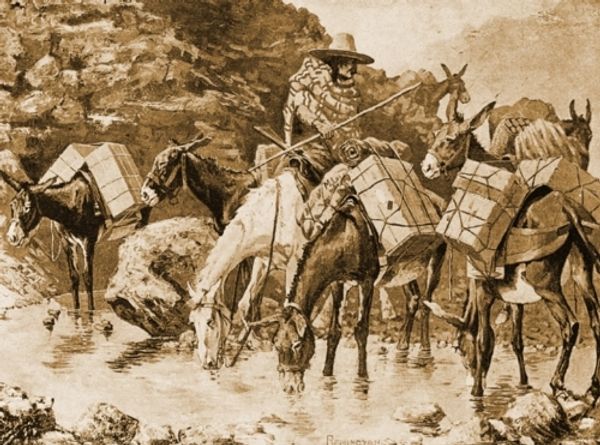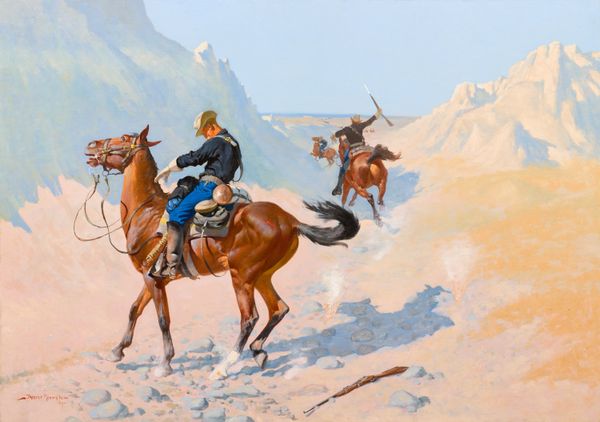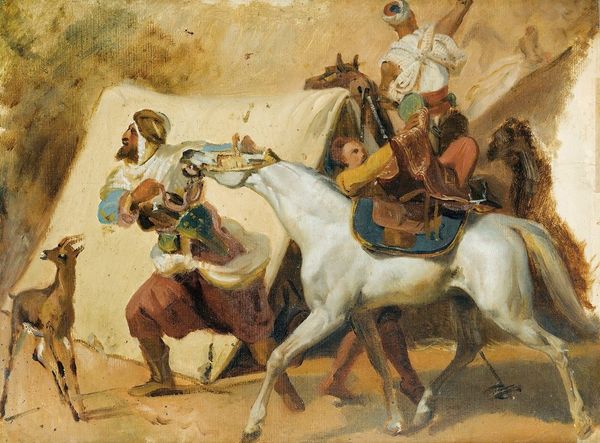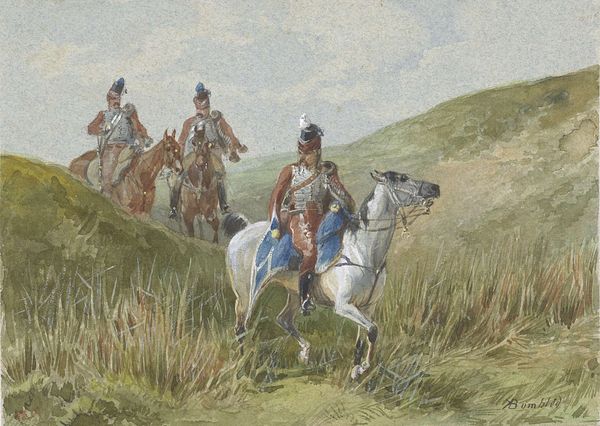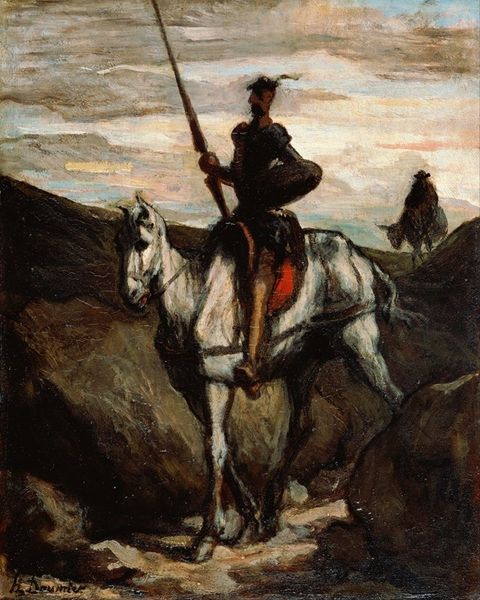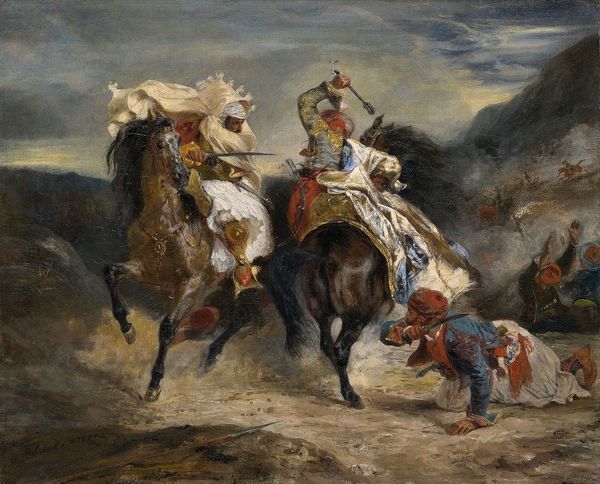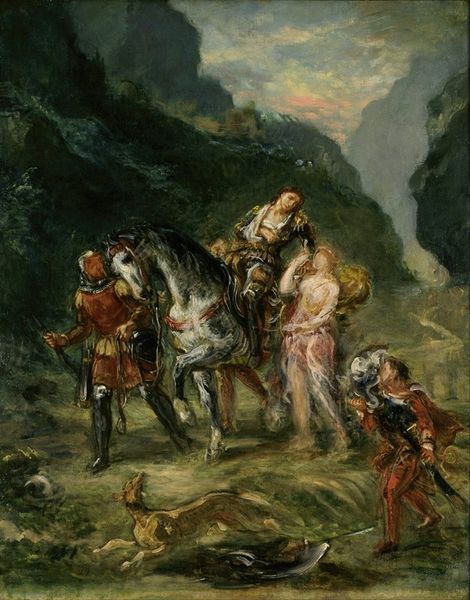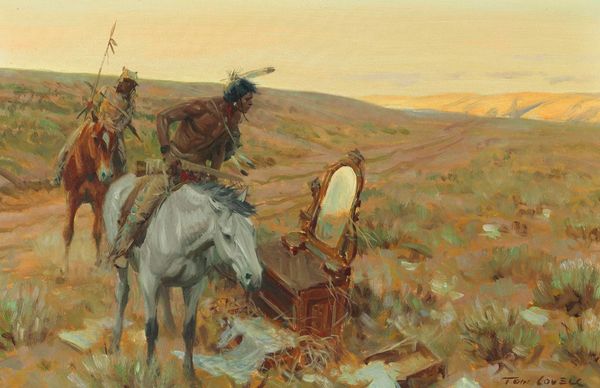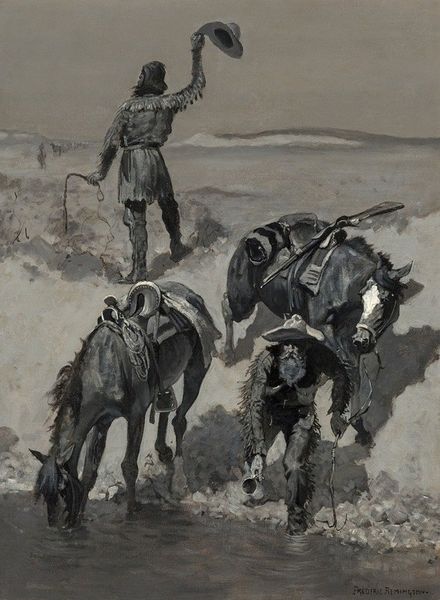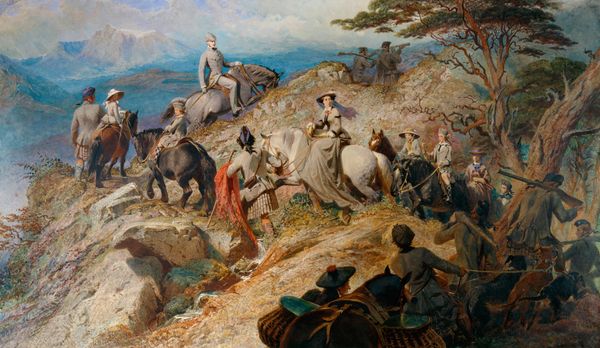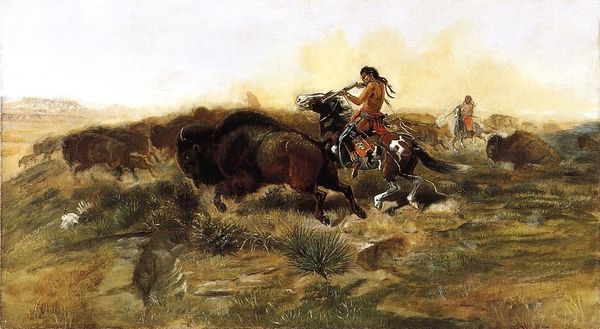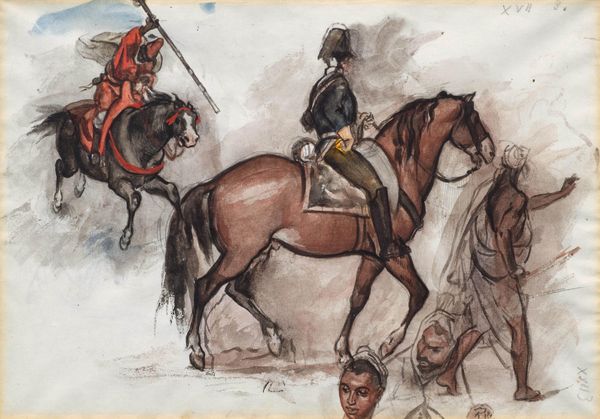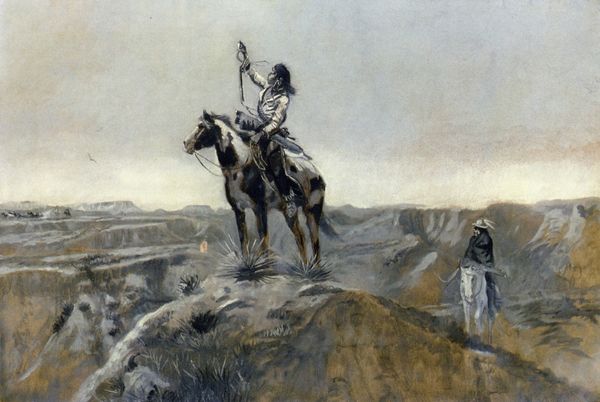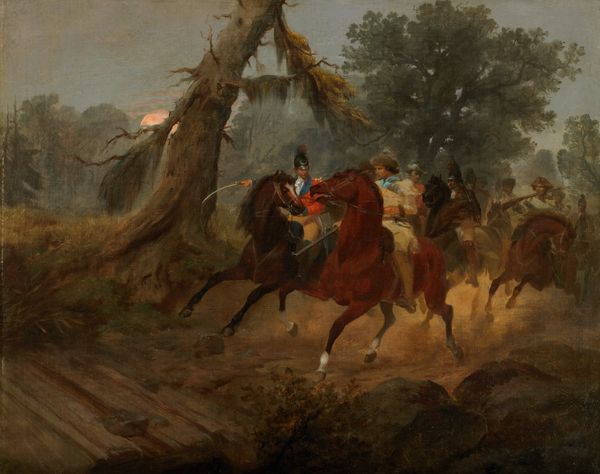
painting, oil-paint
#
figurative
#
narrative-art
#
painting
#
oil-paint
#
landscape
#
figuration
#
oil painting
#
romanticism
#
painting painterly
#
genre-painting
#
history-painting
Copyright: Public Domain: Artvee
Wilhelm Marstrand painted "Don Quixote og Sancho Pancha kommer hjem fra de sorte bjerge" in 19th century Denmark. The image depicts the delusional knight Don Quixote and his loyal squire Sancho Panza returning from an adventure, and can be understood through the lens of 19th-century European Romanticism. Marstrand's painting takes inspiration from Miguel de Cervantes' 17th-century novel, Don Quixote, which satirized the ideals of chivalry and nobility. Here we see Don Quixote in full armor and accompanied by his squire, and Marstrand may have been commenting on the social structures of his own time. Was Marstrand a progressive who embraced egalitarianism? Or was he a conservative, lamenting the loss of traditional values? We can consider the place of the Royal Danish Academy of Fine Arts, where Marstrand taught for many years, as an institution that legitimized certain kinds of art, and certain kinds of social commentary. To understand this artwork better, we can consult historical documents such as exhibition catalogs, artists' biographies, and critical reviews. By examining the painting within its social and institutional context, we can gain a deeper appreciation of its meaning and significance.
Comments
No comments
Be the first to comment and join the conversation on the ultimate creative platform.
